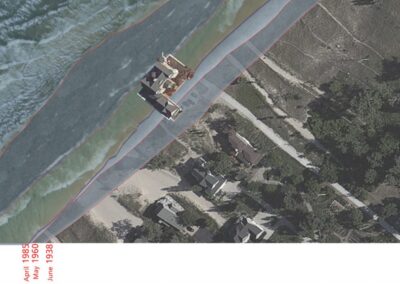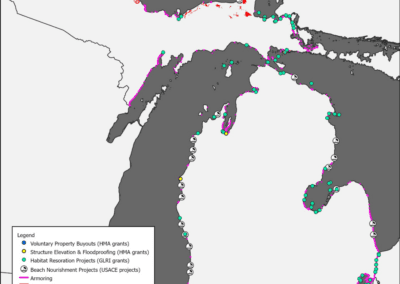The Resilient Great Lakes Coast program is a multi-disciplinary research initiative meant to help coastal communities across the State of Michigan enhance their resilience to coastal flooding. To help communities make better, science-informed planning decisions, a multi-disciplinary team of researchers, planners, and engineers developed techniques identify and analyze potential flood hazard areas within coastal communities across the State of Michigan. Our team works on a local level with municipal officials, residents, and other community groups to develop better coastline management strategies and plans.
From this recent and ongoing work on Great Lakes coastal habits and shoreline dynamics, with support from the Michigan Office of the Great Lakes and local Michigan communities, a set of methods were crafted to help local planners analyze shoreland dynamics, fiscal impacts, environmental vulnerabilities, visualized high risk areas, and land use impacts. Coastal communities can use the methods found here to better assess the potential to restore, retrofit, and recouple their dynamic shorelands through state shoreland management policies and laws, as well as with local master plans, regulations, and polices. As local communities explore these methods and ideas on their own, they will become more adaptive and resilient to climate shocks along their coastlines.



